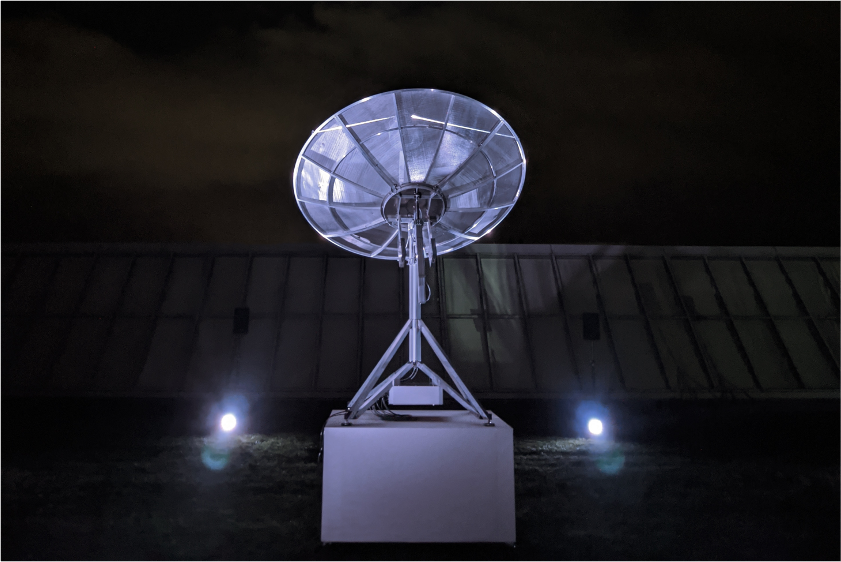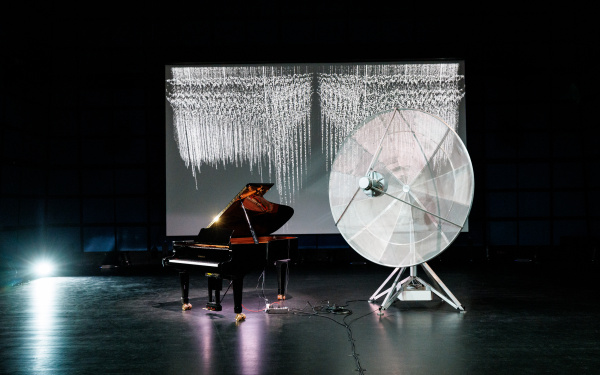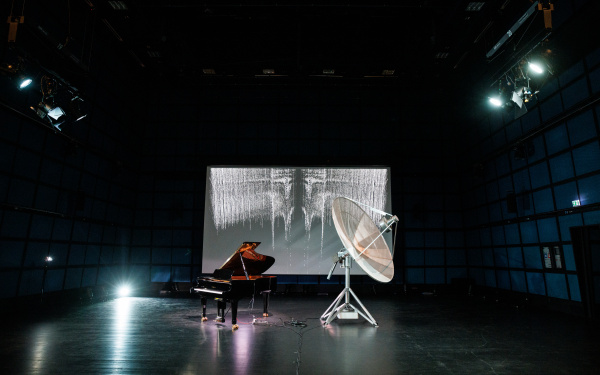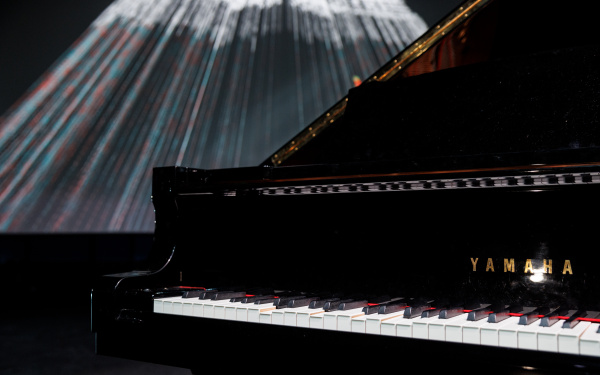- Exhibition
Fantasie#4
Installation by the artist collective Quadrature in collaboration with Christian Losert
Wed, April 13 – Sun, August 28, 2022
Wed, 13.04.2022 - Sun, 28.08.2022, open daily between 10 am and 7 pm except when there are rehearsals at the ZKM Cube.
- Location
- Cube Subspace
The installation »Fantasie #4« is presented as part of the exhibition »BioMedia«. It features audiovisual variations for radio telescope, automatic piano, and artificial intelligences.
A radio telescope is used to detect electromagnetic waves. The raw data is transposed into audible frequencies. The resulting musical theme is processed by various algorithms and artificial intelligences. This creates multiple variations ranging from pure midi versions to increasingly virtuosic interpretations. Trained on human-made sounds, neural networks negotiate fundamental principles of classical composition and scan the strange noise from the telescope for traces of known harmonies or melodies. By imitating human creative and expressive acts, electronic agents cultivate the raw signal into rhythms that are transferred to an automatic piano, navigating the boundaries of randomness, intentionality, and interpretation.
The audiovisual installation is part of a series of works in which artificial intelligences trained on human communication data look for patterns and rhythms in data from outer space. Electromagnetic radio waves from across the universe serve as input data for multiple neural networks trained on human music and language. From this point onwards, humans take on a purely observational role in the process. Set free by their human creators, the artificial intelligences delve into the strange data and create ever-new fantastic variations. The result is a never-ending concert of extraterrestrial and artificial sounds, in which an automatic piano and a telescope communicate with each other with the help of artificial intelligences.
Abstract graphics shown on the LED wall of the ZKM reflect the same principles, reacting directly to the music. Patterns arise and dissipate as the artificial intelligences progress form one composition to the next.
Participating artificial intelligences:
piano genie, trained on classical piano music
polyphony rnn, trained on 20th century piano masters
several MelGAN-VCs, trained on whispers, voices, and singing
Partners
Funded by a grant from the Stiftung Kunstfonds.
Special thanks to:
Sebastian Müllauer and Marco Pasini



